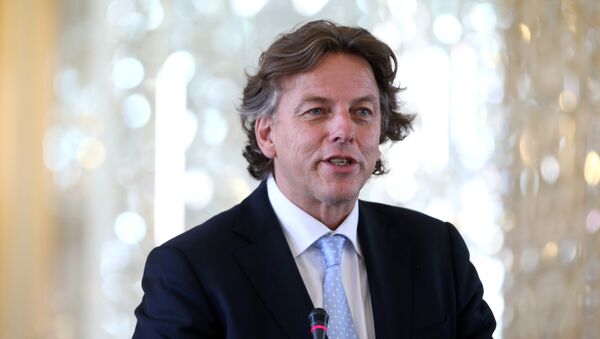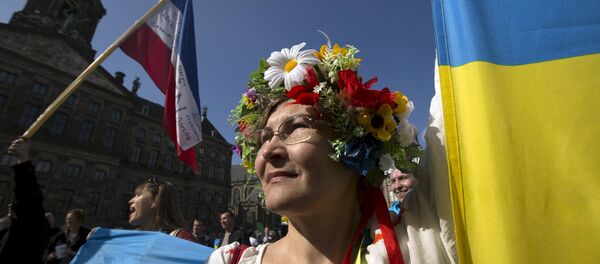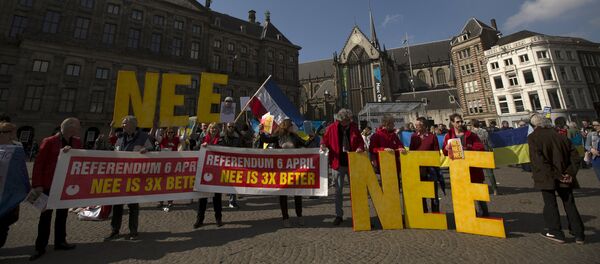Ahead of the vote, some European media sources have alleged that the Kremlin has been secretly involved in preparations for the referendum. In an interview for the Dutch newspaper Algemeen Dagblad, American political scientist Robert Kaplan went so far as to suggest that Russian President Vladimir Putin had prepared and organized the vote.
Looking to see whether there was any truth to the (admittedly outlandish) allegations, Sputnik caught up with Dutch Minister of Foreign Affairs Bert Koenders outside the polling station where he voted on Wednesday. Was it the case, Sputnik asked, that Amsterdam was coordinating with Moscow on this issue, and was the Kremlin responsible for organizing it?
"Of course not, and of course it was not organized by the Kremlin," the minister replied.
"This is a Dutch democratic initiative to let people express their opinion about the association between the European Union and Ukraine. I don't think that it's a vote directed against Russia, against Ukraine or against the European Union. It is a vote on the economic cooperation policy between Ukraine and the European Union. It is a vote on the economic and political cooperation between Ukraine and the EU."
In any case, the minister emphasized that he is in favor of the agreement, "since it is in the interests of the Dutch to have a simplified trade regime with Ukraine; I also think that we can help in the fight against corruption in Ukraine. I think that cooperation is part of the Dutch national character."
Asked what would occur if the 'no' vote wins, and the referendum itself manages to gather the necessary 30% participation to be formally taken into consideration by the government, Koenders noted that it would necessitate the government 'getting together and drawing conclusions'. In any case, he added that he does not want to speculate about it.
The referendum on the EU-Ukraine Association Agreement got underway in the Netherlands earlier on Wednesday. The country is the only EU member which has yet to ratify the treaty.
An opinion poll last month conducted exclusively for Sputnik suggested that more people were inclined to oppose the deal than to support it, with 33% of respondents saying they were opposed, and 19% saying they backed the treaty, according to the poll, conducted by the British social research firm Populus.





